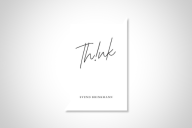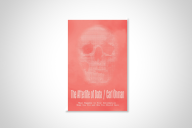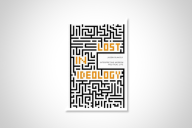You have /5 articles left.
Sign up for a free account or log in.
Ulrich Beck is an internationally known and highly influential sociologist -- easily one of the biggest names in social theory alive today -- and he is to be thanked for finding a way to talk about postmodernity without subjecting us to that word. He refers instead to “second modernity,” and understands it less as a period than as a process. Old-model modernity came from the advance of scientific knowledge, mass production, and instrumental rationality, which broke down patterns of pre-industrial social life and replaced them with its own institutions, such as the nuclear family and the nation-state. With second modernity, individuals are increasingly capable of questioning and challenging those institutions as well, creating new forms of relationship or affiliation.
In particular, Beck’s work on the concept of the “risk society” helps make sense of a contradictory phenomenon. The prediction and control of risk becomes a normal part of life under first modernity. “If a fire breaks out,” he writes, “the fire brigade comes; if a traffic accident occurs, the insurance pays.” But at the same time, our technologies and second-modernity lifestyles don’t inure us to risk. On the contrary, they generate and expose us to new kinds of risk: identity theft, for example, or bizarre meteorological events resulting from global ecological changes. (Or “allegedly” resulting from them: Beck indicates that cultivating ignorance or denial of the new dangers is one possible social response.) Furthermore, the emerging risks tend to be on a scale that cuts across national borders: the globalization of unanticipated danger.
Beck’s latest book in translation, Twenty Observations on a World in Turmoil (Polity), is a collection of sociological commentaries originally published in European magazines and newspapers between July 2009 and September 2011. Theorizing via journalism means painting a landscape from the back of a moving train. But Beck’s established concepts are broad enough to fit the contours of the major events of the past few years, which he lists as “the nuclear worst-case scenario in Fukushima, the global financial crisis, the chaos in the European zone, the uprisings of the Arab spring, as well as the protest movements in Athens, Barcelona, New York, Moscow, etc.” All of them were, he writes, “by nature transnational and therefore cannot be understood and explained within the frame of reference of the national outlook.” (The same would be true of other developments from this period that come to mind: the British Petroleum spill, the Wikileaks document releases.)
Elsewhere, Beck has referred to “zombie concepts”: ideas that are no longer alive but continue moving and, presumably, eating our brains. And the nation-state as a basic scene or subject of political action is, for him, clearly one of the most noxious. At the same time, the new sources of danger are of a nature that makes planning and preparation (by whoever, on whatever scale) both critically urgent and almost impossible. “If man-made climate change has gone beyond the point of no return,” Beck writes, “if terrorists have access to atomic weapons, if the global economy has already imploded, then every measure comes too late! Therefore, we have to invest in new technologies, develop new notions of justice, reduce our consumption and pump billions into failing banks in order to prevent ‘the worst,’ which must never occur and in the face of which our concepts fail.”
That they do. A refusal to think apocalyptically may soon count as irresponsible. And yet Beck’s notes are not despairing. In one essay the argument makes a detour to the American philosopher John Dewey’s book The Public and Its Problems (1927). “According to Dewey,” he writes, “a transnational public sphere powerful enough to create a community arises not from political decisions but from the consequences of decisions which have come to seem problematic in the eyes of citizens. Thus a publicly perceived risk triggers communication among people who would otherwise prefer to have nothing to do with one another. It imposes obligations and costs on people who resist – and who often have the prevailing law on their side.”
Or, to put it in a 1960s way, "democracy is in the streets." We will need what he calls a “global domestic politics” – one recognizing that the well-being of the rest of the world is, after all, a matter of enlightened self-interest. People will have to assume a second-modernity reflexive stance toward their own status as national citizens, and create new modalities of political belonging. The contours of such a politics are barely visible in Twenty Observations: a cross between the Occupy movement and the European Union, perhaps, with some Wikileaks features thrown in. Beck will presumably have more to say about it in his future work.
As for the book now in hand.... Well, the implication seems to be that the transnational public sphere will emerge (and a practice of global domestic politics to go along with it) only in the wake of worldwide catastrophe, not before. And that is an optimistic reading. But then Beck is looking at things from the back of the train, and really doesn't know any more about where it is headed than the rest of us.








